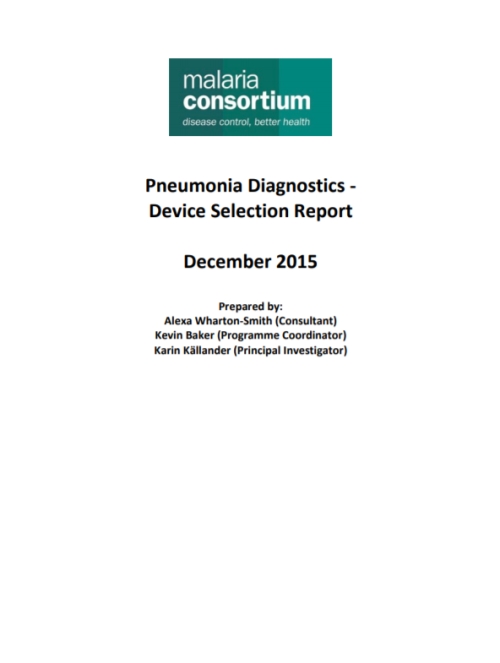
Publication Date:
01/12/2015
Type:
Training materials

Pneumonia diagnostics: Device selection report
Publication Date:01/12/2015
Type:
Training materials
Pneumonia is one of the leading causes of death in children under five, particularly in south Asia and sub-Saharan Africa. Community health workers (CHWs) providing health services in rural and hard to reach areas have been trained to diagnose pneumonia using basic Acute Respiratory Infection diagnostic aids. However, numerous challenges have been identified with the accuracy, use and acceptability of these tools. Therefore, Malaria Consortium — in collaboration with the United Nations Children's Fund, World Health Organization and ministries of health — is conducting a multi-country research project in Cambodia, Ethiopia, South Sudan, and Uganda. The aim of the project is to identify the most accurate, acceptable, scalable and user-friendly respiratory rate timers and pulse oximeters for use in low-income settings. This report summarises the findings from the selection process that determined which devices would be used in the accuracy evaluation and field tests.
Country: Cambodia | Ethiopia | South Sudan | Uganda
Keywords: Community delivery | Digital health | Research | Evidence generation | Pneumonia | Diagnosis | SDGs
« Back to Publications